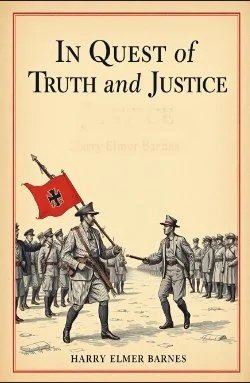In Quest of Truth and Justice
By Harry Elmer Barnes (Author), Colin Heston (Introduction)
Harry Elmer Barnes’s In Quest of Truth and Justice stands as a provocative and enduring challenge to the way history is written, remembered, and weaponized. Published in 1928, the book is a cornerstone of historical revisionism, particularly in its reassessment of the causes and culpability of World War I. Barnes argued that the dominant narrative—one that placed sole blame on Germany—was not only historically inaccurate but also morally unjust. He believed that truth and justice in historical scholarship required a fearless confrontation with political orthodoxy and propaganda, especially when such narratives served the interests of victors and power structures.
Barnes’s work was not merely an academic exercise; it was a moral crusade against what he saw as the corruption of historical truth by political expediency. He insisted that historians must act as independent arbiters of fact, not as servants of state ideology. His critique of the Treaty of Versailles and the war guilt clause was rooted in a broader concern: that distorted history could perpetuate injustice, fuel future conflicts, and undermine democratic accountability.
This ethos—of challenging dominant narratives and seeking justice through historical clarity—finds powerful echoes in today’s global conflicts, particularly in Ukraine and Gaza. Both crises are steeped in competing historical claims, contested identities, and politicized narratives that shape international responses and public opinion.
In both Ukraine and Gaza, Barnes’s legacy invites us to ask uncomfortable questions: Who controls the narrative? Whose history is being told, and whose is being silenced? Are we pursuing truth and justice, or merely reinforcing the power structures of the present?
Ultimately, In Quest of Truth and Justice is not just a historical text—it is a call to intellectual courage. In an age of polarized media, geopolitical propaganda, and moral ambiguity, Barnes’s work reminds us that history is not a weapon to be wielded by the powerful, but a mirror in which societies must confront their own truths. As we grapple with the complexities of Ukraine and Gaza, his message remains urgent: justice begins with honest history.


